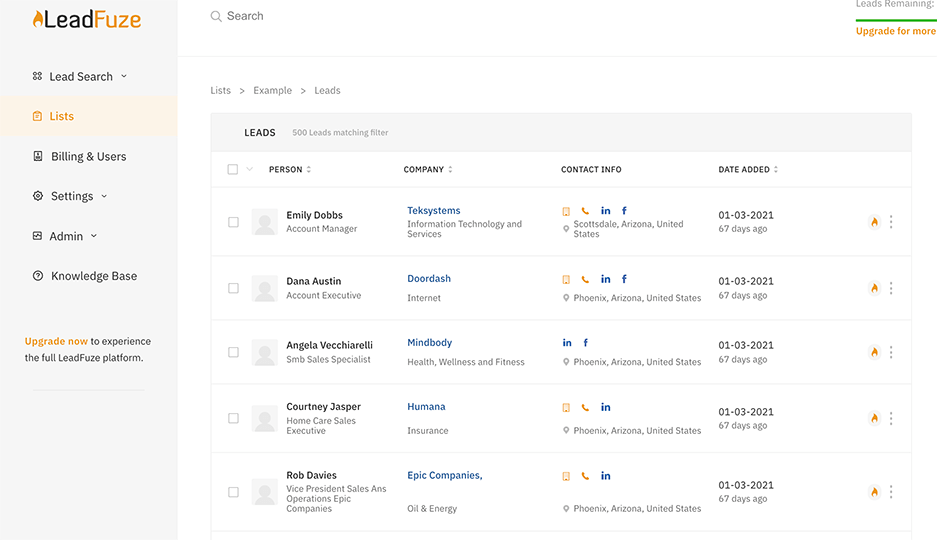Like most people, you probably think of competitive intelligence (CI) as something that only big businesses with huge budgets need to worry about. But the truth is that CI can be a valuable tool for companies of all sizes. Sure, it takes some time and effort to develop your competitive intelligence skills, but the payoff can be huge. By understanding what your competitors are doing, you can make better decisions about running your business. And that’s something that any size company can benefit from. So how do you go about developing your competitive intelligence skills? Here are four tips:
Competitive Intelligence Skills
Competitive intelligence (CI) is the process of gathering, analyzing, and distributing information about an organization’s competitors.
The goal of CI is to give an organization a competitive advantage by providing decision-makers with actionable insights about their competitors. CI practitioners need to have strong research, business analysis, and communication skills to be effective.
They must be able to find and interpret various data sources and then distill them into insights that can be used to inform strategic decision making.
They also need to effectively communicate their findings to decision-makers in a way that is both clear and persuasive.
What Is Competitive Intelligence?
CI is the strategic process of monitoring your competition’s activities to gain insight into their current and future strategies.
Competitive intelligence is the process of gathering, analyzing, and interpreting information about your competitors. This type of information can help you make better strategic and tactical decisions and better understand your competitive position.
If you’re aware that a major competitor is focused on acquiring other businesses, you might choose to compete based on factors like quality and customer service instead of size. This type of knowledge can help you make better strategic decisions overall.
If a competitor begins to source their raw materials from another country, you could use this as an opportunity to market your company as using locally sourced materials. This could be done through marketing campaigns that emphasize supporting local businesses.
The five types of competitive intel are:
Competitive intelligence is the process of gathering, analyzing, and utilizing information about your competitors to improve your own business. It helps you understand what they are doing well, where they are weak, and how you can better position yourself in the market. Competitive intelligence covers five main categories of information: Business strategy assessment, current operations, competitor perceptions, competitor capabilities, and market opportunities. By understanding all of these aspects of your competitors, you can develop a more effective business strategy.
By understanding these 5 key pieces of information, you can better prepare and react to a call.
What are the skills you need for working in competitive intelligence?
Are you interested in a career path in competitive intelligence?
The competitive intelligence industry is rapidly growing as more and more companies realize the importance of knowing their competition.
The rise of online sales enablement and research tools like LinkedIn Sales Navigator and DiscoverOrg has likely contributed to the rise in demand for inside sales reps.
The amount of data available to us is overwhelming, and it isn’t easy to opt out when most of your competitors are investing heavily in market research and industry intelligence.
What tasks and responsibilities does a CI analyst have?
Competitor analysis can be broken down into three major parts: collecting, processing, and disseminating data.
Data Collection – The Fundamental Task of an Analyst
An analyst at a marketing firm spends a lot of time in data collection and researching their competitors. For example, they might study their offerings, financials, road map, and strategy.
An analyst at a digital marketing agency would spend a lot of time monitoring and analyzing online activities, such as social media posts, website visits, and job postings, for insights into what customers are looking for.
As an analyst, staying up-to-date is essential. You can regularly monitor news, patent information, and business developments.
Analysts may also choose to attend or speak at events, conferences, and workshops to stay up-to-date on industry trends.
Analyzing Data – The Most Important Function of an Analyst
The most important part of being an analyst is analyzing data.
As a Competitive Intelligence analyst at a software company, it is my job to identify what our competitors use and test it. I collect the data and then turn it into useful information used for decision-making.
A contact center agent may be tasked with handling multiple product lines or niches in smaller companies. In larger ones, a call center specialist may focus on one area.
The Role of a CI Analyst
Analysts spend much of their day communicating data and insights to other teams. They translate complex information into simple, digestible language, write reports, and provide information and context to employees. Including them in meetings and training is common because of their expertise in the industry.
Because of their deep knowledge of the company, analysts have frequent meetings with clients, employees, and new hires.
A CI Analyst is tasked with researching competitors, customers, and market trends. Their findings are highly valuable to marketing and sales, so they’re such an important part of the company.
In the digital age, companies need to have real-time data and intelligence. It is what makes competitor research so critical.
As an analyst, you are in the unique position of being able to help different teams come together and collaborate. By providing them with objective insights and data, you can enable them to make informed, strategic decisions.
Top 10 CI Analyst Skills
Analysts use technology extensively.
Analysts need to be able to quickly learn how to use new research tools and adopt new technology as it becomes available.
Talking on the phone can be one of the most difficult and rewarding parts of a telemarketing job.
While some people are too swamped with work to answer your call, you will find that many people enjoy talking about their field of expertise.
The most insightful information is rarely at the surface.
Through intelligent exploration and persistence, you will connect the dots and provide clients with the information they need to convert into sales.
Be prepared to switch gears from one day to the next. Some days you might be analyzing the SaaS industry in Asia, and the next day you may be looking into the pharma sector in Europe.
While other less experienced marketers are scrambling for data, you are digging for golden nuggets in unchartered waters.
Analyzing data. Gathering data is pointless unless it is analyzed, evaluated, and acted upon.
You will be tasked with sorting through large spreadsheets and pulling out the stories that are buried within.
Competitive intelligence is nothing like spying.
As competitive intelligence professionals, we must always be discreet and mindful of the companies we represent. By being sensitive to the potential implications of our actions, we can help safeguard our clients’ brands and reputations.
Requirements
While most of our analysts have university bachelor or master’s degrees, we are willing to consider applicants from other industries or professions.
CI Analyst Salary & Outlook
The salary for a competitive intelligence analyst can vary depending on the company but typically increases with more experience. Additional benefits such as bonuses may also be included.
Bottom 10% Annual Salary: $54,000 ($25.96hour)CI analysts typically have a bachelor’s degree in business administration or a related field. They also have several years of experience working in the industry in which they will be providing competitive intelligence. The median annual salary for CI analysts is $85,000. The top 10% of earners make more than $122,000 per year, while the bottom 10% make less than $54,000 per year. CI analysts may also earn bonuses in addition to their regular salaries.
The demand for Competitive Intelligence Analysts is expected to rise faster than the average rate.
Competitive Intelligence Analysis is in high demand as companies try to stay one step ahead of competitors.
Competitive Intelligence Analysts help organizations navigate the complex markets and regulatory landscape.
Conclusion
So, how do you develop your competitive intelligence skills? Competitive intelligence professionals should be able to effectively research and analyze information to provide insights that can help their organization gain a competitive advantage. They should also be able to effectively communicate their findings to others in a way that can be easily understood and used for strategic decision-making.
Need Help Automating Your Sales Prospecting Process?
LeadFuze gives you all the data you need to find ideal leads, including full contact information.
Go through a variety of filters to zero in on the leads you want to reach. This is crazy specific, but you could find all the people that match the following:
- A company in the Financial Services or Banking industry
- Who have more than 10 employees
- That spend money on Adwords
- Who use Hubspot
- Who currently have job openings for marketing help
- With the role of HR Manager
- That has only been in this role for less than 1 year
Want to help contribute to future articles? Have data-backed and tactical advice to share? I’d love to hear from you!
We have over 60,000 monthly readers that would love to see it! Contact us and let's discuss your ideas!

